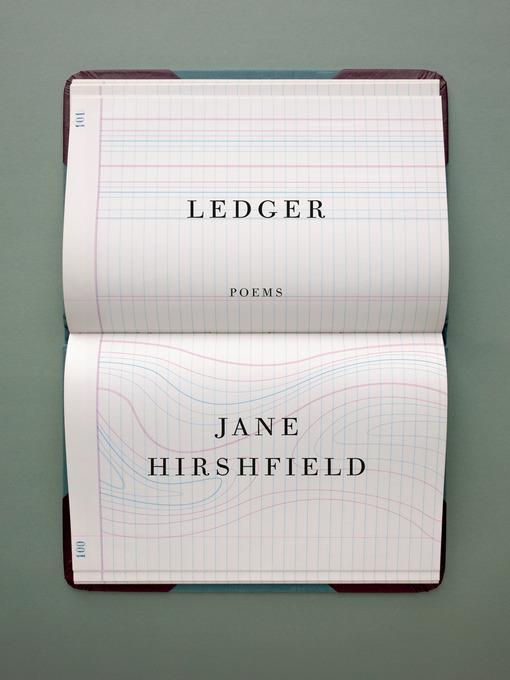
Ledger
Poems
- اطلاعات
- نقد و بررسی
- دیدگاه کاربران
نقد و بررسی

Starred review from January 20, 2020
From the opening poem, “Let Them Not Say,” to the closing, “My Debt,” the masterful ninth book from Hirshfield (Come, Thief) is an account of how “We did not-enough” to save the world. Most poems are no longer than a page, though some are considerably shorter (“My Silence” is only a title). They are set against a page and a half of prose in the middle of the book about “Capital” which, for the writer, is language “as slippery as any other kind of wealth.” Through this juxtaposition, Hirshfield urges a reckoning of human influence on—and interference with—the planet. In “As If Hearing Heavy Furniture Moved on the Floor Above Us,” she begins: “As things grow rarer, they enter the ranges of counting” and ends, underscoring humanity’s obliviousness: “We scrape from the world its... wonder.../ Closing eyes to taste better the char of ordinary sweetness.” Hirshfield suggests that people are unable, or unwilling, to comprehend their role in their own destruction: “If the unbearable were not weightless we might yet buckle under the grief.” Hirshfield’s world is one filled with beauty, from the “generosity” of grass to humanity’s connection to the muskrat. This is both a paean and a heartbreaking plea.

Starred review from March 15, 2020
In her ninth book of poetry, Hirshfield, avidly read and justly celebrated with numerous prestigious awards, seeks to balance what we take with what we give, what we seek with what we find, what we observe with what we comprehend. In intimate poems of being, Hirshfield poses meticulous equations of the self coping with doubt, hunger, age, and death. In equally balanced poems, she encompasses the ecological. "Ledger" perfectly embodies Hirshfield's carefully weighted tone as she reckons with our constant subtraction of Earth's life forces and incessant addition of carbon to our atmosphere, acid to our seas. She applies her cosmic accounting to endangered species: As things grow rarer, they enter the ranges of counting. She writes, What we care about most, we call beyond measure. / What matters most, we say counts. In On the Fifth Day, the scientists who studied the rivers / were forbidden to speak, yet, as Hirshfield writes in Ghazal for the End of Time, we can hear the low, wordless humming of / being unwoven. / Fish vanished. Bees vanished. Bats whitened. Arctic ice opened. Hirshfield is tender, witty, philosophical, and clarion, knowing us to be creatures of yes and no, credits and debits. We were our own future, / a furnace invented to burn itself up. (Reprinted with permission of Booklist, copyright 2020, American Library Association.)




دیدگاه کاربران